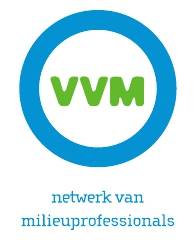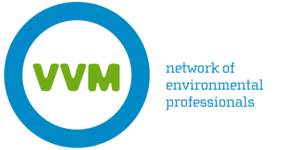In addition to CO2, methane (CH4), nitrous oxide (N2O), fluorocarbons (CFCs, HFCs, SF6, etc.), black carbon, aerosols and tropospheric ozone (O3) contribute significantly to climate forcing. Reducing these emissions is often more cost-effective than reducing CO2 emissions. This leads to an enhanced interest in, and need for significant NCGG-emission reductions. Roadmaps addressing NCGG-reduction measures from policy towards implementation are still missing or incomplete in many countries. Integrated studies at the science-policy interface, that take into account international trends will support the development of efficient NCGG policies and measures.
From 2-4th November, 2011, the Air Quality and Climate Change Section of the Netherlands Association of Environmental Professionals (VVM) organizes the Sixth International Symposium on science, implementation and policy aspects of non-CO2 greenhouse gases (NCGG-6). NCGG-6 will be held in Amsterdam in The Netherlands and will address both the role of non-CO2 greenhouse gases and aerosols in human-induced climate forcing, and options for their reduction by industry and society. The symposium aims to remove barriers between policy, industry and science and fosters the dialogue between scientists, engineers and officials in industry and government working in this field from different perspectives. This multidisciplinary approach is expected to yield realistic and achievable mitigation solutions that significantly lower NCGG emissions.
The subject of the conference is Non-CO2 Greenhouse Gases. The conference aims at bridging the gap between science and applications within the policy and decision making arenas.
The conference includes papers with respect to causes, effects and solutions of the environmental problems associated with non-CO2 greenhouse gases. Causes, effects and solutions are reflected in the three main themes of the conference. The papers may be written from two perspectives: they may report on science (from natural, social, technological or integrated sciences) or on policy. Special attention will be paid to North-South issues, and to the industries’ perspectives in all three themes.
Part of the program focuses on integrative studies. These include contributions from Integrated Assessment studies, multi-and interdisciplinary approaches as well as transdisciplinary sciences. We particularly welcome contributions from the science-policy interface.
Theme 1 will concentrate on sources, sinks and inventories, including emissions monitoring and reporting and verification of emission data.
Information on sources and sinks is basic for understanding atmospheric composition and change in climate forcing, for emission inventories at different scales, and as input for models at varying scales. Papers in this theme could focus on CH4, N2O, Fluorocarbons, SF6, black carbon and/or aerosols. Integrated studies could discuss the metrics to be used for international emission reduction targets for aggregated greenhouse gases or study the interactions between greenhouse gases and air pollutants.
New estimation methods and estimates for sources and sinks can be presented for all relevant sources. These could be based on
In addition, attention will be paid to emission inventories and in particular on
Special attention will be paid to quantification of sources and sinks in tropical and developing countries.
Theme 2 will concentrate on atmospheric processes, and in particular on the physics and chemistry related to the radiative aspects of the atmosphere, including monitoring of concentrations of non-CO2 greenhouse gases, atmospheric processes including the relations between greenhouse gases and other air pollutants (e.g. aerosols), both using models and analyzing atmospheric measurements.
Papers in this theme could include:
Special attention will be given to
Theme 3 will concentrate on policy implementation with emphasis on mitigation and adaptation. Studies in theme 3 may include assessments and evaluations of past and current implementation programs for reduction of non-CO2 greenhouse gas emissions and novel and innovative approaches in policy implementations. Contributions within this theme will be from both natural sciences (e.g. reporting on new emission reduction technologies) and social sciences (e.g. on the economic or institutional feasibility of measures). Contributions on technological issues and industries’ perspectives are welcomed, as well as discussions on the realization of policies.
Papers to be presented could include new measurement or modeling results on:
Special attention will be paid to:

Dutch Association of Environmental Professionals
TNO
Water Systems and Global Change Group, Wageningen University & Research
WIMEK Graduate School
NCGG9 is organized by:
p/a UCo
2e Daalsedijk 6a
NL-3551 EJ UTRECHT
The Netherlands
T +31 (0)30 - 232 29 89
E eciffo@ncgg.info

Stichting MilCon (Foundation for Environmental Congresses, a separate legal entity that is linked to VVM) is responsible for the logistic and financial management of NCGG9. The contents of the symposium is the responsibility of VVM and its co-organisers. Logistic services for NCGG9 will be provided by the VVM-bureau.